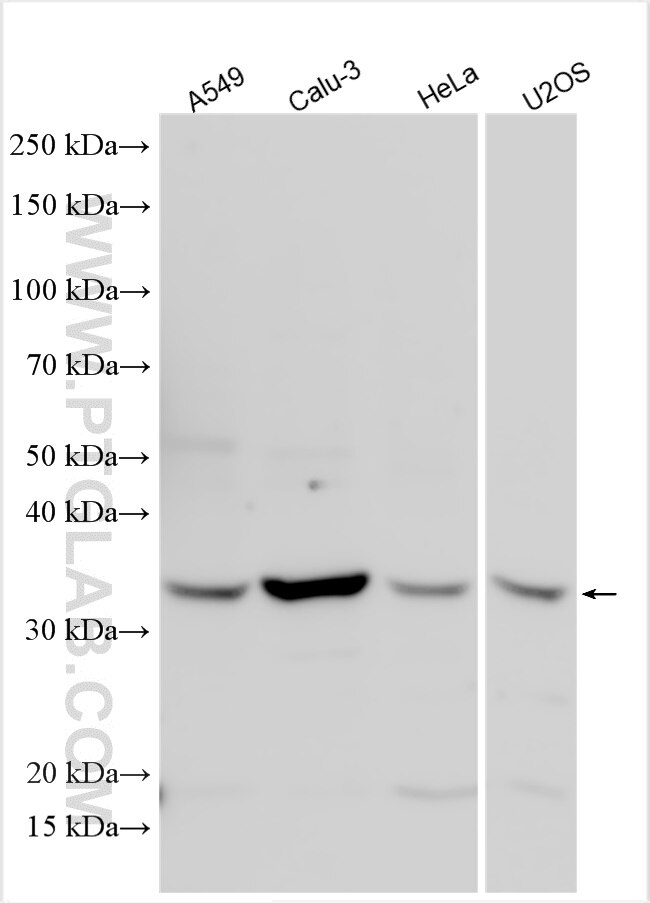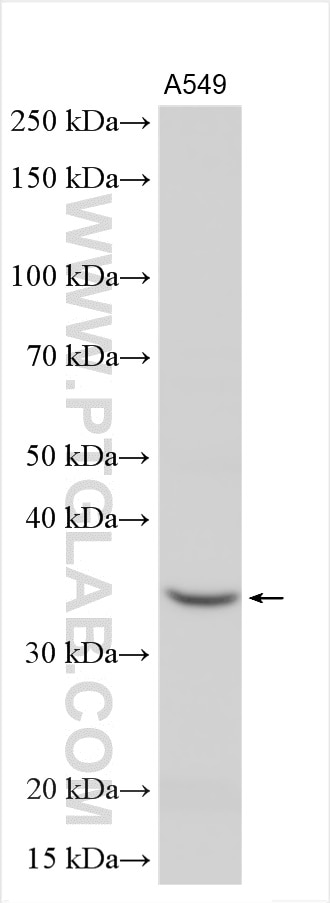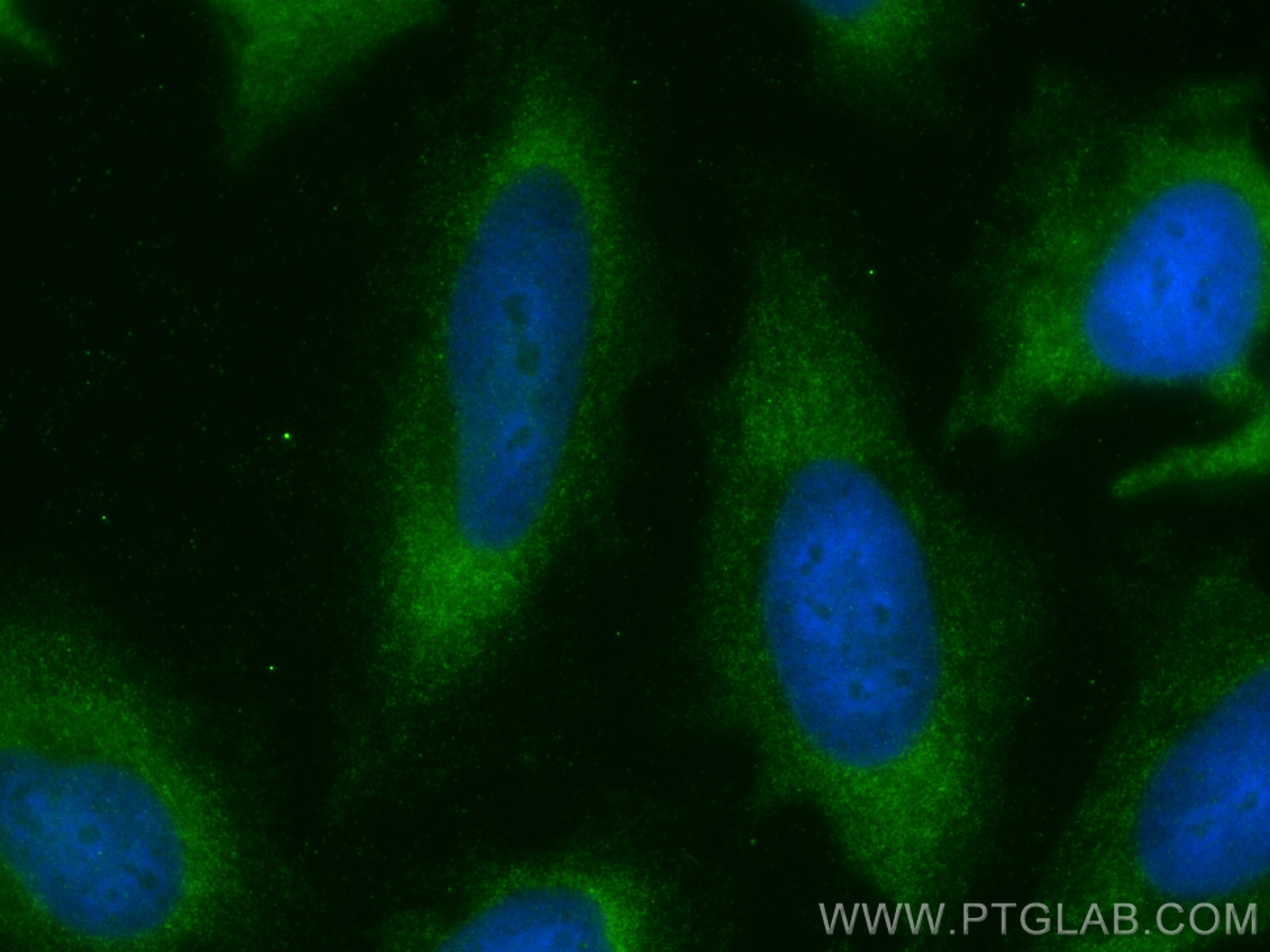Validation Data Gallery
Tested Applications
Recommended dilution
| Application | Dilution |
|---|---|
| It is recommended that this reagent should be titrated in each testing system to obtain optimal results. | |
Product Information
27350-1-PBS targets Follistatin in WB, IF/ICC, Indirect ELISA applications and shows reactivity with human samples.
| Tested Reactivity | human |
| Host / Isotype | Rabbit / IgG |
| Class | Polyclonal |
| Type | Antibody |
| Immunogen |
CatNo: Ag26401 Product name: Recombinant human FST protein Source: e coli.-derived, PGEX-4T Tag: GST Domain: 135-334 aa of BC004107 Sequence: DGKTYRNECALLKARCKEQPELEVQYQGRCKKTCRDVFCPGSSTCVVDQTNNAYCVTCNRICPEPASSEQYLCGNDGVTYSSACHLRKATCLLGRSIGLAYEGKCIKAKSCEDIQCTGGKKCLWDFKVGRGRCSLCDELCPDSKSDEPVCASDNATYASECAMKEAACSSGVLLEVKHSGSCNSISEDTEEEEEDEDQDY 相同性解析による交差性が予測される生物種 |
| Full Name | follistatin |
| Calculated molecular weight | 33 aa, 7 kDa |
| Observed molecular weight | 35 kDa |
| GenBank accession number | BC004107 |
| Gene Symbol | Follistatin |
| Gene ID (NCBI) | 10468 |
| Conjugate | Unconjugated |
| Form | |
| Form | Liquid |
| Purification Method | Antigen affinity purification |
| UNIPROT ID | P19883 |
| Storage Buffer | PBS only{{ptg:BufferTemp}}7.3 |
| Storage Conditions | Store at -80°C. |
Background Information
Follistatin (FST) is a member of the tissue growth factor β family and is a secreted glycoprotein that antagonizes many members of the family, including activin A, growth differentiation factor11 , and myostatin. It binds activin A with high affinity and whose expression can be induced by activin A and several other pro-inflammatory cytokines. Activin A-follistatin complexes are biologically inactive and bind to cell surface heparan sulphate-containing proteoglycans for internalisation and degradation. It has also been found to play a significant role in the management of skeletal muscle size and mass. It also has important roles in early embryonic development, differentiation of ovarian granulosa cells, liver fibrosis and polycystic ovarian syndrome.



